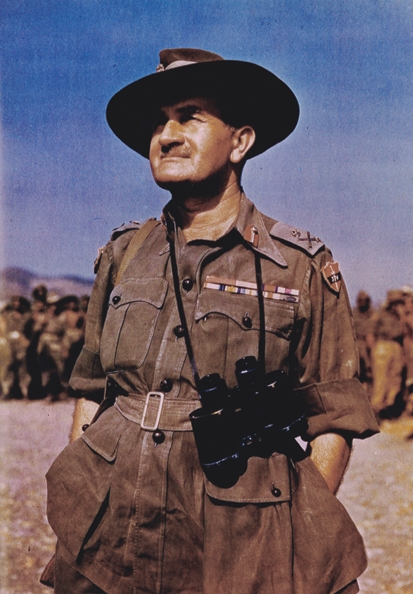Given the outcome of recent military campaigns in Iraq and Afghanistan, it is pertinent to look for one particular quality in our senior commander: honesty. In other words, after blaming vainglorious politicians for precipitating us into war without adequate preparation or resources, it is reasonable to ask, how capable are our generals of admitting their own mistakes?
Their persistence in two failed strategies — the application of Northern Ireland peace-keeping tactics to Basra and the dispersal of troops among forward posts in Helmand — does not suggest any culture of mea culpa, and ruthless self-examination has not been a distinguishing feature of the annual lectures delivered by the Chiefs of the Defence Staff to the Royal United Services Institute in the past decade. Yet, as is apparent from this new, timely biography of our most defeated and most successful commander of modern times, Field Marshal William Slim, a capacity for acknowledging past failure is vital to secure future success.
Writing of his first unsuccessful operation in North Africa in 1940, Slim confessed:
Like so many generals whose plans have gone wrong I could find plenty of excuses but only one reason — myself. When two courses of action were open to me, I had not chosen, as a good commander should, the bolder. I had taken counsel of my fears.
Later, when driven out of Burma by the Japanese in 1943, he wrote unsparingly of himself:
The soldier may comfort himself with the thought that, whatever the result, he has done his duty faithfully and steadfastly, but the commander has failed in his duty if he has not won victory — for that is his duty. He has no other comparable to it.
George MacDonald Fraser of Flashman fame, who served under Slim described him as having ‘the head of a general but the heart of a private’. The formidable chin and steady stare were unmistakably those of a commander, and his uncomplicated integrity was instantly recognised by the most junior ranks under his command; but any reader of Slim’s incomparable memoir Defeat into Victory will be chiefly struck by his powers of imagination. They enabled him to write vividly but more importantly to place himself inside the mind of a subordinate or an enemy general, and to visualise with utmost clarity the steps needed to shape an encounter to his advantage. If success did not follow, he learned the lesson.
Any account of his life must show how, in the Burma campaign between 1942 and 1945, Slim employed these attributes to hold together a shattered army throughout a 900-mile retreat, rebuild its morale, restore its health, retrain it in jungle warfare, create the modern system of air supply, and weld into a cohesive force half a million strong, Indian, British, Chinese, American and African troops led by such touchy generals as the messianic Orde Wingate and the anglophobic Joe ‘Vinegar’ Stilwell.
The result was Slim’s XIV Army that from March 1944 not only drove General Kamabe’s 300,000 Japanese out of Burma, but did so across an unforgiving terrain of mountainous jungle and swampy, disease-ridden valleys, repeatedly pulverising a hitherto invincible army that had threatened to take control of both India and China. As a feat of arms, it far surpasses the Duke of Wellington’s peninsular campaign.
Russell Miller’s account is readable, well-constructed and robustly, indeed blimpishly, expressed — Gandhi is ‘scrawny’, Wingate ‘uncouth’ and Indian towns ‘mildewed’. Furthermore he has had access to Slim’s two children — hence the ‘authorised biography’— allowing him to quote from beguiling letters to his daughter written sometimes on the eve of battle.
But an absence of maps is symptom-atic of the book’s major shortcomings: both publisher and author should be ashamed of an omission that short-changes readers by making it impossible to understand the geography of the campaign. Any adequate military life ought also to provide a proper comparison of the evolving capabilities of tanks, artillery and aircraft. And although he cites many tributes to Slim’s qualities of leadership, above all to the sense of confidence he instilled in subordinates by the clarity of his vision and the trust he reposed in them, Miller offers no convincing analysis either of the man or of the seeds of his genius beyond what is to be found in the field marshal’s own writings.
Nevertheless, as a reminder of the sheer magnitude of Slim’s achievement and of its relevance to modern warfare, the value of this contribution outweighs its flaws.





Comments